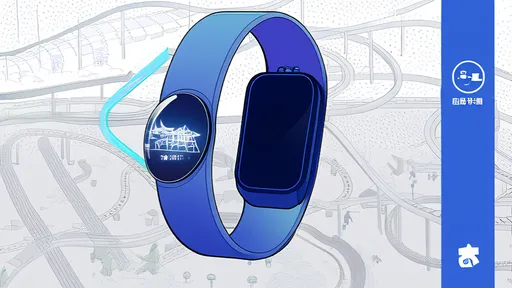The European Union is on the brink of implementing a significant change to its border control policies with the upcoming launch of the European Travel Information and Authorization System (ETIAS). This new framework, set to go live in mid-2025, marks a pivotal shift in how non-EU travelers gain entry into the Schengen Zone. The system has been in development for years, and its impending activation has sparked widespread discussion among governments, tourism industries, and frequent travelers alike.
ETIAS represents Europe's response to evolving global security challenges while attempting to streamline border procedures for visa-exempt visitors. Modeled after similar programs like the U.S. ESTA and Canada's eTA, the authorization will become mandatory for citizens from over 60 countries who currently enjoy visa-free access to Schengen nations. The European Commission emphasizes that ETIAS isn't a visa, but rather a pre-screening mechanism designed to identify potential security or migration risks before travelers reach EU borders.
The application process will be entirely digital, requiring travelers to complete an online form with personal details, passport information, and answers to security-related questions. Most applications are expected to be processed within minutes, though some may require up to 30 days for manual review. Successful applicants will receive authorization valid for three years or until passport expiration, allowing multiple short-term entries across the Schengen area. The €7 application fee applies to adults between 18 and 70 years old, with exemptions for other age groups.
Industry analysts predict substantial operational impacts at European ports of entry during the initial implementation phase. While the EU promises minimal disruption, the transition period will likely see increased processing times as border officials adapt to the new verification protocols. Airlines and transport carriers face particular challenges, as they'll bear responsibility for verifying ETIAS approval before boarding passengers bound for Europe. Travel industry groups have expressed concerns about potential confusion among infrequent travelers unaware of the new requirements.
The political dimension of ETIAS cannot be overlooked. European policymakers position the system as a necessary evolution in border management, citing growing concerns about irregular migration, terrorism, and the need for better data collection on visitor flows. Critics argue that the scheme creates unnecessary bureaucracy and could deter tourism from key markets. Privacy advocates have raised questions about data retention policies and the system's integration with other EU security databases.
For business travelers and tourism operators, the clock is ticking to prepare for ETIAS implementation. Travel management companies are already updating their systems and client advisories, while European hotels and conference organizers are incorporating ETIAS reminders into their booking confirmations. The coming months will see an extensive information campaign from EU authorities targeting both travelers and transportation providers.
The true test of ETIAS will come during the 2025 summer travel season when the system processes its first massive influx of applications. If implemented smoothly, it could become a model for other regions seeking to balance open travel with security concerns. However, any significant technical glitches or communication failures could lead to chaotic scenes at Europe's borders and lasting damage to the continent's reputation as a welcoming destination. As the launch date approaches, all stakeholders are watching closely to see whether this ambitious digital border project will fulfill its promise of safer, more efficient travel to Europe.

By /Jul 25, 2025

By /Jul 25, 2025

By /Jul 25, 2025

By /Jul 25, 2025

By /Jul 25, 2025

By /Jul 25, 2025

By /Jul 25, 2025

By /Jul 25, 2025

By /Jul 25, 2025

By /Jul 25, 2025

By /Jul 25, 2025

By /Jul 25, 2025

By /Jul 25, 2025

By /Jul 25, 2025

By /Jul 25, 2025

By /Jul 25, 2025

By /Jul 25, 2025

By /Jul 25, 2025

By /Jul 25, 2025

By /Jul 25, 2025